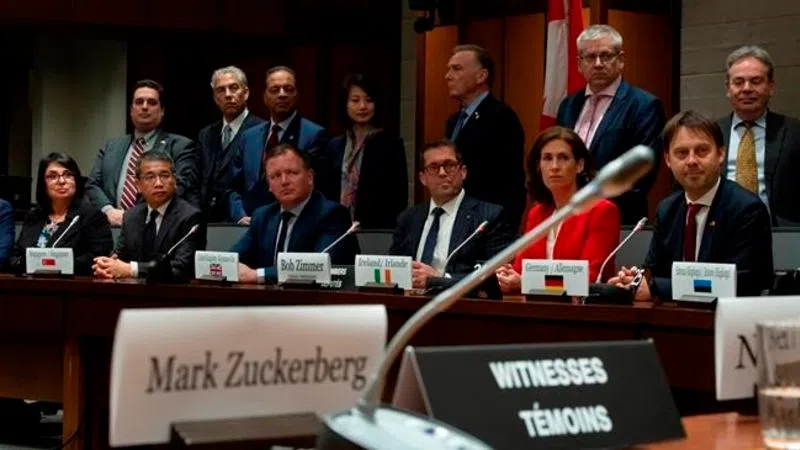
Committee blasts Zuckerberg, Sandberg for ‘abhorrent’ snub of summons
OTTAWA — A panel of international politicians vented anger at Mark Zuckerberg and Sheryl Sandberg on Tuesday after the Facebook executives snubbed their summons to appear at the international grand committee on big data, privacy and democracy in Ottawa.
The committee’s chair, Conservative MP Bob Zimmer, called it “abhorrent” the two did not appear, and he closed a marathon session of testimony by telling the two Facebook employees who were sent in their place that it was “shameful” their bosses didn’t show up.
The committee, comprising politicians from Canada, Britain, Argentina, Belgium, Brazil, France, Ireland, Latvia, St. Lucia, Ecuador and Singapore, is examining the role of internet giants in safeguarding privacy and democratic rights. Zuckerberg and Sandberg were called to testify but did not appear.


